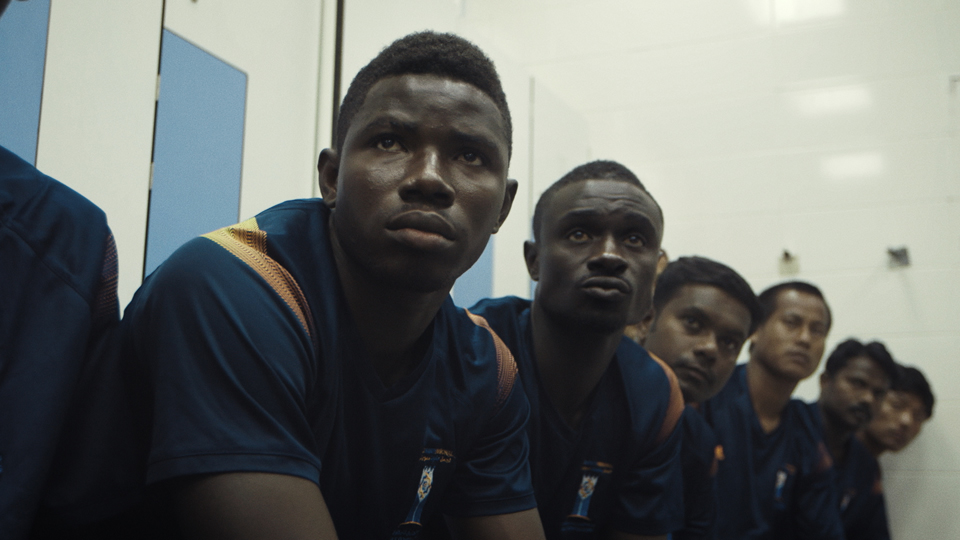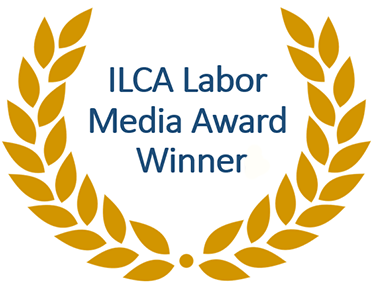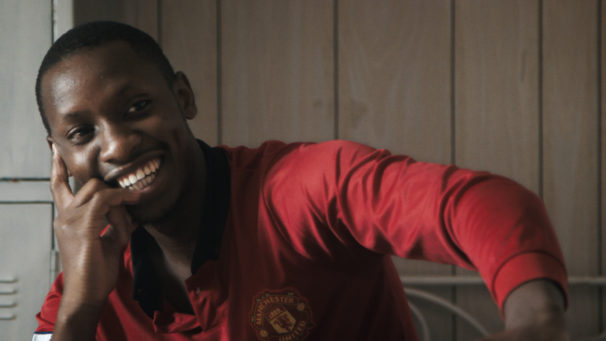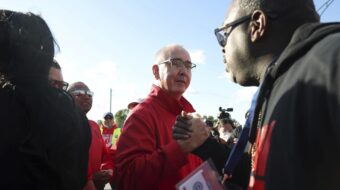
2019 ILCA PW Winner, THIRD PLACE Best Analysis
If you’re a fan of sports, or sports films, then you relish the wide range of emotions you go through as the game unfolds. Viewers feel nervousness, fear and hope, straddling the line between elation and despair, wondering which team will come out victorious.
 The Workers Cup is a sports documentary, with socio-political themes, that gives rise to all of these emotions and more for reasons that go far beyond the field. It shines a light on the labor camps of Qatar, where migrant workers slave away by day building the 2022 World Cup facilities. At night, teams of workers compete in a football tournament of their own (that’s soccer for us in the U.S.), yearning to grasp the glory that eludes them on their day job. But the much bigger game on display—of the rich versus the poor—casts a longer, haunting shadow over the entire movie, making for compelling storytelling.
The Workers Cup is a sports documentary, with socio-political themes, that gives rise to all of these emotions and more for reasons that go far beyond the field. It shines a light on the labor camps of Qatar, where migrant workers slave away by day building the 2022 World Cup facilities. At night, teams of workers compete in a football tournament of their own (that’s soccer for us in the U.S.), yearning to grasp the glory that eludes them on their day job. But the much bigger game on display—of the rich versus the poor—casts a longer, haunting shadow over the entire movie, making for compelling storytelling.
We follow a group of construction workers as they toil twelve-hour days on the stadium where the FIFA World Cup 2022 will take place. We focus on a select number who have been chosen to play in the Workers Cup, a tournament sponsored by the 2022 World Cup committee in which 24 construction companies have been invited to field a team. We get a deeper view into the exploitation that these young men endure from day to day, and also the passion they invest into the game, in order to achieve a small measure of importance.
The FIFA World Cup, known simply as the World Cup, is the biggest, most prestigious sporting event on the planet, exceeding even the Olympics by billions in viewership. Since it began in the 1930s, countries have bid to host the World Cup in hopes of benefiting economically by the revenue it is boasted to produce. Past tournaments have yielded mixed results and controversy in some countries: Brazil, for example, which hosted the tournament in 2014, was thrown into economic turmoil and social unrest afterward. Nonetheless, countries still bid, and Qatar is set to host the World Cup in 2022.
Yet right now, as the countdown to the bright lights, star athletes and adoring fans ticks away, the World Cup facilities in Qatar are being built with the blood, sweat and tears of 1.6 million migrant workers. Housed in labor camps that are legally segregated from the rest of the city, these laborers earn wages that often amount to no more than 200 to 400 dollars a month. Imported from India, Nepal, Bangladesh, the Philippines and, increasingly, Africa, they work low-paying jobs in order to ensure that FIFA 2022 happens.
As the film explains, once a worker arrives in Qatar his residence permit is controlled by the company he works for. He cannot change or quit his job, or leave the country without the company’s permission. Many of them are experiencing modern-day indentured servitude at best—and new-age slavery at worst. Qatar is a tale of two cities: It’s one of the richest countries in the world, backed by the world’s third-largest natural gas and oil reserves, yet 60 percent of its total population are laborers, many of them in the labor camps.
With this contradiction at the forefront, The Workers Cup trudges through this “slice of life” story of the workers on the GCC company team. We meet Kenneth, from Ghana, 21 years old, with big dreams of playing professional sports one day. He tells how a recruiting agent in Ghana tricked him into going to Qatar in hopes of joining a professional football club. Instead he works in construction for GCC, and is the captain of their football team. Kenneth is but one example among an array of narratives the film uses to open a window onto the world these men find themselves in. By offering these men a chance to speak and explain their predicament, the film serves to humanize the issue of labor exploitation. It’s not a faceless subject, but one that affects real people with plans and aspirations.
The documentary goes back and forth between the tournament and the players’ work lives. It is structured so the viewer will be drawn into the intensity of the games on the field, followed by scenes that put in perspective that essentially these men are playing fantasy football: No matter the final score, the game of life still has the rich and the bosses winning. In that sense the deliberate uneasiness created by the filmmakers implores the viewer to look beyond the cheering crowds, and more to where the real value lies in the plight of the World Cup workers.
At one moment, even after winning a game, a group of the men sit down for a serious conversation about what freedom means. It’s a sobering scene, as they struggle for a satisfying definition. Ultimately they proclaim it’s not something they have in their current state. They are aware of their situation and not completely comfortable with their status, but neither hopeless nor prepared for any sort of rebellion. One administrative worker in the camp, echoing the complaints of many others at a workers meeting, describes Qatar: “It is hell! It is hell! And it’s only for the rich people!”

This is not necessarily a feel-good movie. It becomes obvious that FIFA is just using the Workers Cup as a public relations stunt in order to look good to the United Nations, and also recruit more workers from other countries. Viewers may become angry, and rightly so. You watch and want to see a happy ending for the underdogs. But this is no cleverly constructed work of fiction, and no such ending seems within reach. You should be prepared to walk away with a sobering perspective about the millions of lives oppressed in the name of a football tournament—or rather for the greed of those who will profit from it.
What is made clear is that the migrant workers put a deeper stock in the sport than the managers and bosses do: It’s one of the few times they are given agency, and that means something to them. The fact that there are people who have to rely on this tournament for a little glimpse of hope should mean something to us.
There’s a bigger game at play here, and we all are part of it in some way, not mere bystanders in the crowd. It’s the eternal game of class struggle, which the Workers Cup tournament embodies in this timely documentary. As director Adam Sobel noted in a statement to the press, “In order to make a film that the workers could be proud of, I aimed to capture the complexity of their experiences and push beyond the common narrative that migrant workers are casualties of circumstance. My hope is that our film creates empathy for their story rather than sympathy.”
Billions of people across the globe are actually in the shoes of these workers, perhaps not in such extreme or overt circumstances, but still part of the same struggle for rights and livelihood. It’s a game they are playing to win with passion and heart despite the odds. It’s that passion and resilience which center this resonating film.
The U.S. theatrical premiere for The Workers Cup is June 8 in New York and Los Angeles; it opens in Washington, D.C., on June 29. A list of screening locations can be found here. The trailer can be viewed here.












Comments